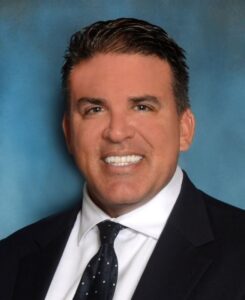 2 min read December 2021 — Fort Lauderdale is experiencing a thriving healthcare landscape, jolted by strategic partnerships and technological innovation. Mark Doyle, CEO at Holy Cross Health, shares his insights on the primary strengths of healthcare delivery in the area.
2 min read December 2021 — Fort Lauderdale is experiencing a thriving healthcare landscape, jolted by strategic partnerships and technological innovation. Mark Doyle, CEO at Holy Cross Health, shares his insights on the primary strengths of healthcare delivery in the area.
How are national trends influencing those of South Florida’s healthcare sector?
The national trend that is also evolving here relates to the development of ambulatory surgery centers. With the elimination of the Certificate of Need in South Florida, people thought initially that there would be a rush of healthcare organizations trying to build new hospitals. Fortunately, that has not happened, which is not to say that it will not happen. South Florida, particularly, is a very competitive market. You have some really heavy hitters — Baptist, HCA — in this market. Everyone is competing for the same patients. Now that physicians have the opportunity to have equity ownership and a surgery center, it has definitely been a game changer for us. Moreover, the CMS is continually opening up more of the procedures that are eligible in an outpatient setting and ambulatory surgery center. We have seen such a significant number of our joint replacement procedures migrate out almost overnight that we are trying to figure out how to fill our OR. We anticipate seeing more of that in this market. We also have venture capital money that seems to be popping up. They realize that healthcare is a huge, growing market and everyone seems to want a piece of that. We are seeing new entrants to the market soliciting our physicians for equity ownership in the surgery centers. Over the next three to five years, we expect more of an acceleration of a migration outside the four walls of the hospitals. It has happened for joint procedures and it will happen for cardiac next as people become more comfortable not going to a hospital.
What technological developments are you looking to deploy to the benefit of patients and staff?
We are migrating from our Electronic Medical Record (EMR), from MEDITECH to Epic. The latter is the Cadillac of all health records. We will be undergoing a massive transition in October 2022. This is a multimillion-dollar investment for us, not only at the hospital, but at all the clinics, because right now our systems do not talk to each other, from the physicians’ offices to the hospital. It has been problematic for us to maintain the continuity of care with paper records, which in this day and age seems almost archaic.
As far as online tech goes, we have used a platform called DocASAP for online scheduling. It allows us to offer same-day and next-day primary care schedules all online. However, we’ve developed a call center, which has been housed in one of our buildings with about 35 employees who consistently navigate patients through primary care, lab, imaging, and our specialists. This is new to Holy Cross over the past year and a half. We call it the Patient Navigation Center (PNC) and the umbrella is Holy Cross Healthy 360. Essentially, from every aspect of your health, from the time you are a baby to when you are a senior, we want to have an input through our physicians, through our virtual health platforms, to assist patients and keep them healthy. That is our overarching goal: Healthy 360 at Holy Cross. The technology piece is a huge advancement for us to be able to do all this. Without that, we would not be able to be competitive in this market.
What other key partnerships are you looking to capitalize on?
We have a partnership with Memorial Health Care System, and formed a joint venture to create a Medicare Advantage plan called Oscar. We are also looking to partner with an ASC management company to expand into new areas. We also are opening up a medical detoxification unit via a partnership with New Vision to have a designated 20-bed unit for healthy recoveries. We also have a convent on campus that has not been used since 2014. We are leasing it out to a company that is going to provide a 30-day residential alcohol and drug treatment program as well, which will be a nice continuity of care for the inpatient unit that we are doing.
Our objective is to have a >20% market share in all of our service lines. In the event we are below 20%, we intend to partner with a provider that can help us achieve this. But overall, we look to align ourselves with organizations that are aligned with our mission and values to explore opportunities to expand our brand throughout South Florida.
How does your commitment to underserved areas relate to keeping healthcare affordable?
We do have clinics in certain underserved areas, at least two, but all our offices accept uninsured patients. We have a pretty aggressive program that qualifies patients for charity as well as Medicaid. We do not discriminate under the ability to pay. We continue to identify areas in our community that are underserved to position ourselves and to make sure that we are taking care of the most vulnerable and the most needy. Fortunately for us, we have some good demographics here, so it is a more overt effort to try to identify areas that are underserved.
What is your outlook for the healthcare sector in Broward-Greater Fort Lauderdale for the next two to three years?
We anticipate it will continue to be highly active, we will see a lot more mergers and acquisitions among healthcare providers and new entrants for surgery centers. There will be a lot of activity around that space and a lot more investment as well.
For more information, visit:
